The Genius of Being
Contemplating the Profound Intelligence of Existence
A new book by Peter Ralston,
author of
Reflections of Being,
The Book of Not-Knowing,
and Pursuing Consciousness.
a book by Peter Ralston
A new book by Peter Ralston,
author of
Reflections of Being,
The Book of Not-Knowing,
and Pursuing Consciousness.
While The Book of Not Knowing is already a standout in its field, and Pursuing Consciousness effectively grounds those who have realized some insight in the difficult work of self-transformation, The Genius of Being extends Ralston’s vision beyond these previous works to illuminate further the existential nature of the human experience. The reader is invited to look deeply into the brilliance, or “genius,” of this whole business of life and existence. As with all of his work, the aim is to assist the reader in personally experiencing what’s true and how it came to be this way.
Ralston’s pragmatic approach to consciousness helps the reader remain grounded even while investigating the entirely overlooked foundations of the world in which we live. Beyond the goal of enlightenment, The Genius of Being introduces some of the unseen elements that create your world. The reader is invited to contemplate and look deeply into subjects such as the origins of self and other, the nature of language and mind, the illusions of space and time, the fundamental nature of experience itself, and more. This is a book that opens into deep contemplations, and is not to be taken lightly.
“In 2010, when I finished The Book of Not Knowing after nearly a decade of writing and revision, most people assumed I’d produced a definitive volume encompassing the entire field of consciousness work. Although that book sets the foundation, there is still more to understand. After working with my consciousness apprentices, it became clear that they, and thus very likely most other people, urgently needed clarification on the differences between self-transformation and enlightenment, so I set to work. The result, Pursuing Consciousness, has proven to be a useful addition, but there were still profound elements of the consciousness work that had never found their way into any book. Until now.”
Bound by Brilliance
Fact and Truth, Belief and Assumption
Grasping the Communication—Developing Existential Listening
The Truth Principle
Not Knowing: An Essential Tool for Contemplation
A Path to Experiential Learning
Self-Orientation and “The Bull” Contemplation
Social Management and Self-Image
Cultural and Personal Beliefs
The Creative Aspect of Mind
What Is a Distinction?
What Is Language?
Inventions Made Possible By Language
Language vs. Presence
Language and Objective Reality
The Nature of Language and Mind
Self and Other
Language vs. Concept
Creating an Internal Person
Forming a Social Self
Internal Dialogue: Whom Are You Talking To?
A Framework for Reality
Human and Cultural Assumptions
Culture and Self
An Assumed Reality
Infinite Learning
Space and Time
Objects
The Consequences of Being an Object
The Consequences of Being “Inside”
The Assumption of Life and Sentience
Instinct vs. Learning
Primal Emotions
Gender
Sex
Life
Your Role in Life
Death
Social Life
Self-Concept and Identity
Being Alive
Reality: Dust to Dust
Transcending the Life-Reality Illusion
The Separation Conundrum
The Nature of Context
Language
Mind
Value
Space
Grasping Context
Changing Context
Our Current Context for Experience
A New Context
More Accessible Changes
Watch What You “Say”
The Contextual Contributions of Existential Assumptions
The Role of Enlightenment
A New Contextual Distinction
Grounding Change
Mind vs. Consciousness
The Flower Child Principle
The Consequences of Self-Contraction
Reversing Self-Contraction
The Importance of Purpose
A Quick Practice: Breathe!
Proof of God
Keep in Mind
When we thoroughly inspect and discover everything we can about reality, we find every aspect of the entire universe—including our minds, our bodies, and our perceptive-experience—is brilliantly designed with an unrivaled effectiveness and complexity that not only creates the world in which we live but also makes it quite challenging to grasp for what it is. The challenge that seals off our understanding isn’t actually the complexity itself so much as the seamless nature of our experience. The very dynamics that allow us to function and manage life so well obscure any consciousness of what’s ultimately true.
As human science and thinking progresses we are discovering, piece by piece, many details and unbelievable facts about our reality. The genius of this world, however, goes primarily unnoticed except when we occasionally pat ourselves on the back as interesting scientific discoveries are popularized, or when we entertain or assert some “cosmological” philosophy or fantasy. Both discovery and assertion, however, remain primarily just intellectual additions to our experience.
To go beyond this limitation, in The Genius of Being we’re invited to contemplate previously unknown assertions about the existential nature of the human experience. Ralston reveals new discoveries about the workings of mind, the nature of language, the origins of self and other, the nature and origins of experience, and other ground breaking contributions to understanding the human condition—all with an eye on reaching toward the absolute.
Looking deeply into the existential origins of this whole business of life and experience can provide a very new perspective about the world in which we live. This perspective may further assist us in connecting life-as-we-live-it with an absolute truth that seems distant from our needs.
1:1 If you’ve never attended a contemplation intensive, try to imagine spending days on end among a few dozen people engaged in earnest contemplation as you all strive to become conscious of your true nature. The low voices of participants doing dyad work creates a rolling hum in the meditation hall, and their energy seems to ebb and flow with the sound, often trailing off to a solemn silence. In such a setting, imagine how startling it is when a participant bursts out laughing with joy. I’ve seen a workshop’s focused nature suddenly up-ended when peals of genuine heartfelt laughter erupt from someone who’s had a breakthrough. You can tell just by looking at the person, whose face and demeanor clearly show an incredible lightness and open bliss. At such times, there’s no doubt they just had an enlightenment experience.
1:2 But why should something so profound as an awakening consciousness elicit laughter? We imagine that an effort as serious as trying to become conscious of the very nature of our existence would result in a serious outcome, but it’s often the opposite. When we leap out of the world that we normally experience, we’re instantly provided with an unprecedented view of that world: it’s the same, but with one exception that changes everything: we’re free of it, and suddenly our fabricated and unnecessary self-myopic experience falls away. As one student shared after his first enlightenment: ‘In an instant I got free. Positive and negative experiences were things I was doing, and not something inflicted on me. I became conscious of my absolute nature, and I thought: I’ve finally come home.’ Such freedom often elicits a state of euphoria that’s difficult to understand within our self-experience, because here we’re completely ignorant.
1:3 With or without any enlightenment experience, humans have long noticed that every aspect of the universe appears to be brilliantly designed, from the macrocosmic to the intricate details of our own bodies and minds. From time to time we might pause to marvel at some of the profound beauty of our world, but rather than grasping the sheer ingenious effectiveness of our ability to live and perceive, we are instead far more inclined to take our perceptions entirely at face value. We don’t stop to notice that our experience of all of it is entirely secondhand.
1:4 The seamless nature of our perceived experience is so astonishingly effective that even when we attempt a direct encounter, we can find no apparent opening through which to approach the matter. We might acknowledge a buried sense of inauthenticity and even suspect that there is much beyond the tightly constricted world as we perceive it, but, prior to an unprecedented breakthrough in consciousness, we can’t even begin to guess in which direction to move. Whatever is ultimately true about the world we live in, it seems to be beyond our grasp.
1:5 Bridging the gap between our experience and its origins is best done by directly grasping the real nature of existence – also known as enlightenment. Prior to such an event, however, most people mistakenly believe that this understanding is somehow going to be commensurate
with their intellectual powers, or even that it’s predicated on some kind of ‘spiritual’ strength or virtue. What actually prevents our understanding isn’t some missing ingredient in our ‘being’ or even the vast complexity of the matter itself. The reason we cannot discern the true nature of reality is that the purpose for our experience keeps us constantly focused elsewhere. The dynamics that allow us to manage life so well also serve another function: they obscure any consciousness of what’s ultimately true.
1:6 How is it possible to become conscious of something that’s present but of which we’re unaware, and if it is true and present, why aren’t we aware of it? We live our lives within two domains of existence that are occurring simultaneously. The first domain is what actually exists or occurs as reality. This world is the one we attempt to address through science, contemplation, philosophy, and so on. The second domain is our experience, which is the ‘personal reality’ that each of us occupies and which holds our attention daily and most of the time. These two domains are very different because one is what’s existentially true, the other is only occurring ‘as if’ it’s true.
1:7 Genius of Being refers to the first domain, since in this case, ‘being’ denotes ‘existing”what is and what is actually occurring and how it is occurring. The use of the word ‘genius’ is a rather poetic emphasis pointing to the mind-boggling complexity, intricacy, and interrelated effectiveness of every aspect of existence. When we embrace this domain in any way, awe is often the first response. And then there’s grasping that the very nature and source of Being ‘of Existence and Consciousness’ is absolute, and its manifestation into life and reality is without break or hole; it is complete, and everything works. It’s perfect. It’s brilliant. There is no mistake. It is exactly as it is. When we grasp the nature of it all at once, joyous laughter is an appropriate response.
1:8 Strangely, our first domain, although held as the ‘real’ reality, is always a stretch to ascertain. We don’t access it directly in our personal perceptive experience, as shown by the fact that we must use science, contemplation, existential thinking, and deep considerations and study simply to approach it. By contrast, our personal experience always sits right in our lap, requiring no stretch at all. What’s overlooked is that this very personal experience was built not given. It seems ironic that the real is so hard to come by while the fabricated is totally accessible and automatic. As I often point out:
Paradox and confusion are the guardians of the Truth.
1:9 Within our highly subjective and insular experience, we are ignorant of any absolute truth; what we’re left with instead are layers of conceptually produced experiences. This human ‘reality’ is created by a myriad of conceptual inventions such as self, culture, language, assumptions, beliefs, and more. Even the power and brilliance of these inventions are overlooked in favor of managing life within them. Our daily experience is completely devoted to supporting our personal survival in both the physical and social worlds that we share. In this realm, being aware of the conceptual nature of our experience serves no useful purpose. Unfortunately, ignorance here disguises the fact that what we perceive and hold as obviously true is actually an unnecessarily restrictive creation.
1:10 Of course, give us any line and humans will eventually find a way to cross it. Numerous people over millennia have had enlightenment experiences that, against all logic, seem to support the possibility of direct experience. Prior to such an event, we aren’t incapable of recognizing the insular self-world that we inhabit, but it’s assumed to be simply a necessary condition of life. Afterward, although we may have had but a glimpse of the freedom available beyond our familiar world view, it becomes possible to recognize that our perceived experience doesn’t exist in any objective sense. This new understanding of reality as a merely subjective fabrication instantly releases us from its domination.
1:11 When we personally attempt to experience what’s actually true, we’re often too involved in our own concerns to see clearly. Yet, as in science, we can adopt investigative procedures and new ways of thinking that advance us toward an unbiased look at the origins of this very experience. Through contemplation, we can discover the hidden but central contributions to the human condition, which are what allow us, as well as force us, to experience the world the way we do. Contemplation gives us the space to wholeheartedly inquire about any matter. What is reality? Do we create it, or does it create us? Simply gaining the ability to deeply question our experience assists us in connecting life-as-we-live-it with the absolute truth, which otherwise appears to be always beyond our reach.
A common man marvels at uncommon things;
a wise man marvels at the commonplace.
attributed to Confucius
1:12 Each of us has a perceived reality that makes up the conditions of our existence and determines the effectiveness with which we manage life. We rarely think to wonder about it, perhaps are even fearful of doing so, but it is an interesting question: Just how accurate are our perceptive faculties? In 15:4 of The Book of Not Knowing, we considered the limited perceptive capacity of an amoeba, which, although it has no ‘idea’ of danger, will move away from a disturbance. It doesn’t matter whether it perceives accurately, only that the stimulus causes a response that increases its chances for survival. We too respond to stimuli with preference and
aversion but, unlike the amoeba, we imagine that our perception of reality is the same as reality itself. It’s not. Our perceptions may be astonishingly coherent, efficient, and even indispensable to our survival, but they do not reveal the ultimate truth.
1:13 Just as with an amoeba, our perceptions need not show us what is inherently true; they only need to be functional in serving our survival. Since all our actions and judgments are dependent on and must relate to our perceptive-experience, it’s important that our experience of reality is as closely aligned to an understanding of the truth as we can make it. Even if we can’t represent what’s absolutely true, it still makes a real difference to be aware of this disconnect and to relate to what’s perceived accordingly. This can’t be done, however, if the conceptually dominated perceptive-experience isn’t known for what it is–a complex of conceptually crafted activities that began to arise the moment we did.
1:14 As I try to explain that our perceptive-experience is inadequate to the task of representing absolute reality, it can sound to some people like I’m disparaging the human faculties of perception when in fact I think they’re awe-inspiring. The event of perception and recognition itself, not to mention the vast array of abilities in thought, emotion, and communication ‘indicates a real genius of being at work. This same level of genius applies to the infinitely complex intelligence in the design of our bodies and the entire universe. The problem is that all of this creativity is taken as reality and as Truth.

Born on October 29, 1949 at St. Mary’s hospital in San Francisco, CA USA. As a child Peter’s family moved a great deal, so much of childhood was in Singapore and his teen years in Tokyo. From a very young age, even at 6, he spontaneously began contemplating the nature of reality—the nature of time, maturity, death, the location of self and consciousness were all subjects of childhood inquiry and breakthrough. With an interest in the martial world, which began at age 9, he obsessively began to study and work toward mastery. Studied pre-med at UCB. Then, finding Zen and other forms of inquiry as he neared adulthood, his heart became devoted to an all out pursuit of the Truth, no matter what the form.
Peter Ralston is one of the founders of the consciousness movement that began in the San Francisco Bay Area—the birthplace for much of the personal growth work generated in the late Sixties and early Seventies. It was here that organizations such as Actualizations, EST, Gestalt, NLP, and many, many others sprang up—a vast range of studies from spiritual and New Age approaches to human transformation, to psychic development, new paradigms in psychology, bodywork, health, and more. Although the pursuits were diverse, the overall spirit was one of breaking free from old ways of thinking and creating more powerful ways to live.
Peter was fortunate to study with the top facilitators of this groundbreaking era in human potential. He worked for Stewart Emery in Actualizations, and helped Werner Erhard create a fundamental shift in his work from EST to developing the Forum. Peter spent thousands of hours in Zen contemplation and has participated in dozens of intensives with Charles Berner, the founder of the Enlightenment Intensive.
After powerful enlightenment experiences of his own in the early 70’s, and maturing in his work through further study with other teachers, in 1977 Ralston opened his own teaching center in Berkeley, California. Coming directly from the source of the emerging personal growth movement, Ralston’s work at The Cheng Hsin School for Ontological Research contributed a powerful new direction, pressing for a deeper level of honesty and a more authentic approach. In both mind work and martial arts, his approach has always been to lead students away from what is merely believed, and toward a powerful personal experience of discovering for themselves what is true.
Ralston has been doing his Consciousness work for over four decades, facilitating the staff of Lifesprings and of Tony Robbins NLP trainings, as well as workshops for Esalen, Institute for Self Actualizations, Empowerment, and many others across the US. Although many know him for his creation of the Art of Effortless Power, and as the author of The Principles of Effortless Power, and Zen Body-Being, he is also the creator of the Empowerment Institute, and the author The Book of Not Knowing and Pursuing Consciousness. Ralston is an inspired teacher, electrifying his students as he leads them to experience new insights and breakthroughs, transforming their views of themselves and their experience of life.
Among his many accomplishments over the years, he was the first non-Asian to ever win the full-contact martial arts World Championships held in China, has had many enlightenment experiences, has uncovered an untold amount of discoveries as to the human condition, the nature of mind, self, and life, mastered many martial arts, founded the Cheng Hsin School of Internal Martial Arts and Center for Ontological Research; created the Art of Effortless Power, as well as Empowerment—an institute for increasing consciousness. He’s written 8 books to date, some translated into German, French, Hungarian, Croatian, Russian, and other languages currently underway. He teaches at his Center outside of San Antonio, and around the world—Holland, Germany, England, Ireland, Scotland, Denmark, France, Austria, Czech Rep., New Zealand, Australia, Japan, Hong Kong, and others, and has trained teachers who are teaching in many of these countries.
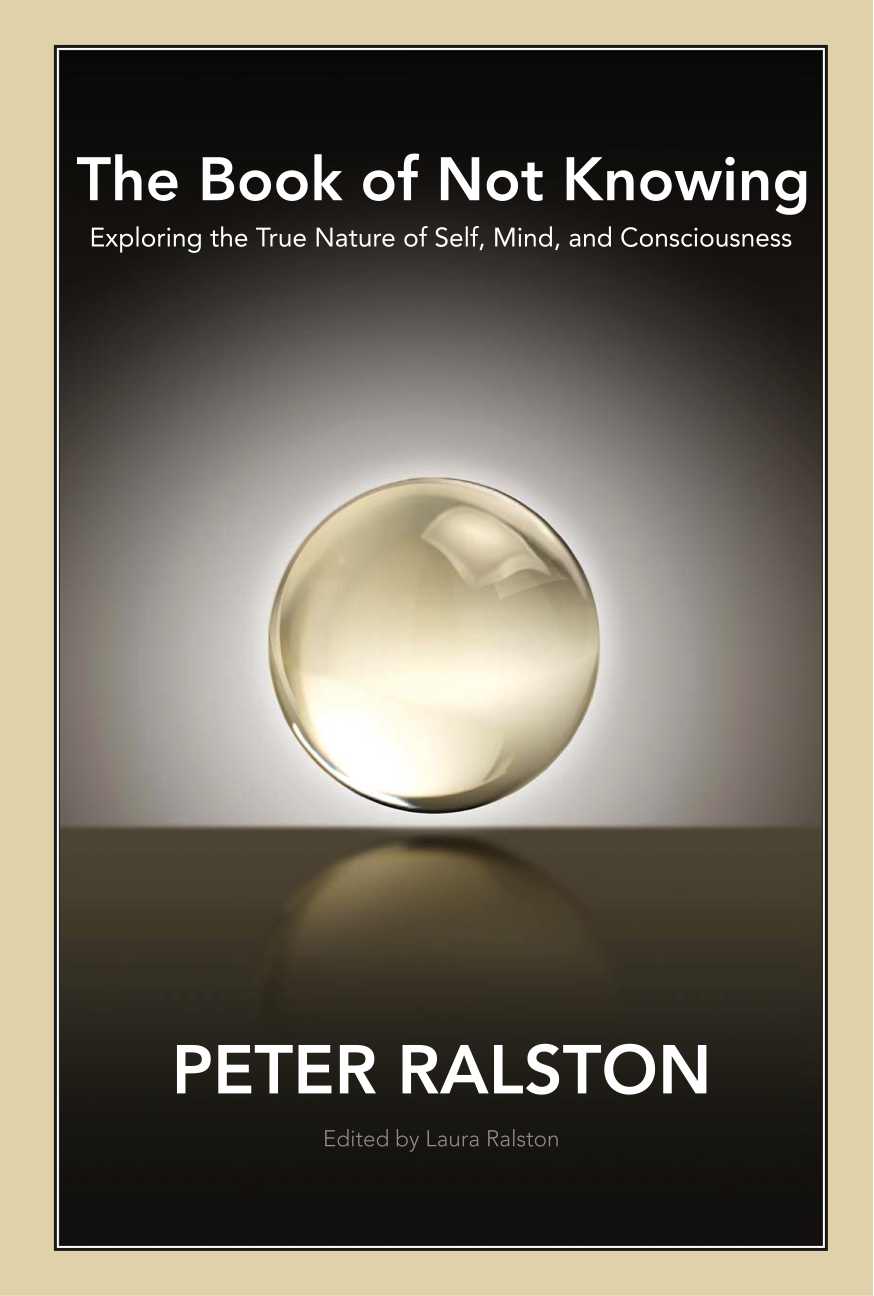
Exploring the True Nature of Self, Mind, and Consciousness
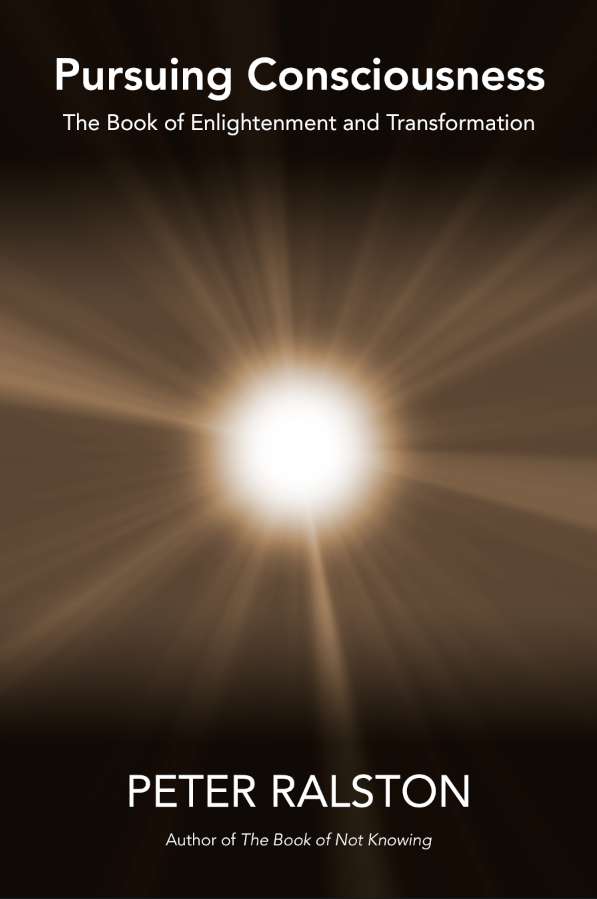
The Book of Enlightenment and Tansformation
“These books have evolved alongside my teaching practice, as each volume is informed by watching students use the last.
True consciousness work rarely offers itself up to be immediately understood. Progress is most often made in fits and starts, with comprehension coming and going repeatedly before a communication becomes real and grounded in one’s experience. When one element becomes clear, it often sheds new light on another that was previously misunderstood or even inconceivable.
The nature of existence cannot be grasped by breaking it down into a set of discrete pieces or mapping it out in a formula. In fact, genuine consciousness regarding this nature eventually becomes far greater than the sum of its parts.”
Peter Ralston
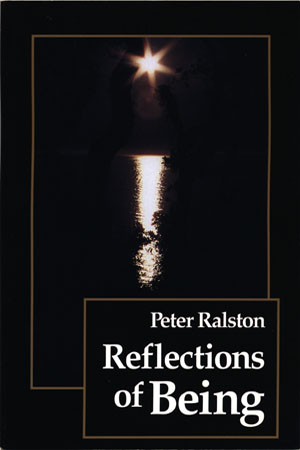
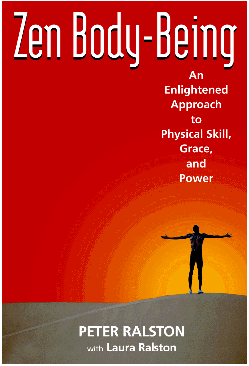
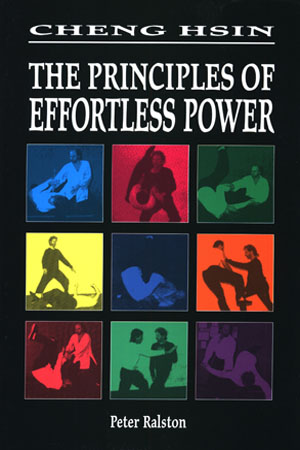
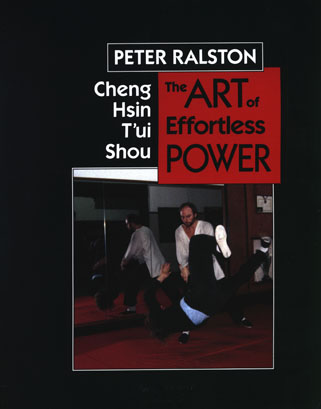
Book excerpts are copyrighted materials used with permission. All rights reserved.